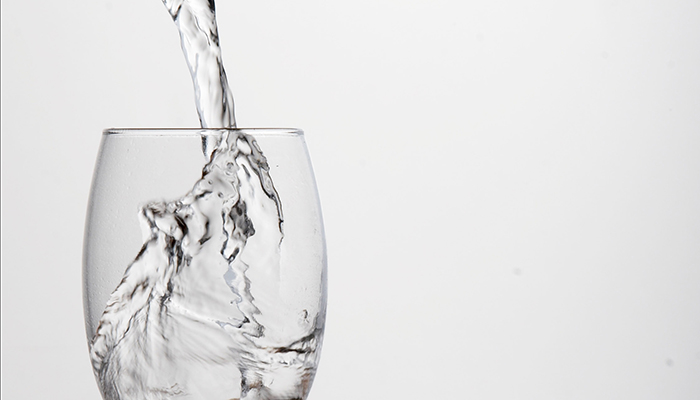Dehydration is probably one of the biggest hindrances to a healthy lifestyle. An estimated 75% of North Americans are conically dehydrated, meaning their bodies continually need more water than they are given. And in first world countries, this is a self-inflicted condition, since fresh water is normally plentiful, yet we still choose sodas or other sugary drinks more regularly than water.
Dehydration comes in a number of stages, with the feeling of thirst coming in when you’re body is lacking only 1-2% of its water, to life-threatening when you’re lacking over 10% of the body’s normal water.
The Basic Stages/Symptoms of Dehydration
1. Thirst, dry mouth, dry/cracked lips, general tiredness
2. Overall fatigue, headache, dry skin, urine darkening, cold sweats
3. Dizziness, lightheadedness, no tears when crying
4. Extreme thirst, dark or no urine, severe headache/dizziness, sunken eyes
5. Rapid heartbeat/breathing, low blood pressure, fever, tremors
6. Delirium, unconsciousness.
Treating the Early Stages
In the early stages, you may be able to correct mild to moderate dehydration with home treatment measures. It is important to take action to prevent dehydration in any stage.
When you know you’re in the first few stages of dehydration, try to drink 2 Liters of cool water slowly over the next 2-4 hours. Keep from drinking coffee, teas, sodas or anything with alcohol. They contain water, but they also contain substances called diuretics that flush water out of your body. Don’t count on them to replenish fluid loss.
Treating Medium to Extreme Stages of Dehydration
First of all, now is the time to see a doctor. Don’t try to do this on your own. Extreme cases require IV drips to get you back to good health, and any home remedies may cause disastrous results.
In a case of severe dehydration, start drinking water slowly while waiting for, or heading to, medical care. Getting water slowly into your body is the best start to re-hydrating yourself.
Preventing Dehydration
Prevention is always better than treating a problem. And with chronic dehydration, prevention is easy in most cases.
The first step in preventing dehydration: drink water as a normal part of your day. It may be hard with your lifestyle and the
amount of flavourful drinks available, but make drinking water a habitual part of your daily drinking.
Take steps to ensure you have water with you during excessive activity like outdoor sports or work, especially if the weather is hot in that area.
Replace lost water at about 1.5-2 times the amount lost. This means if you sweat out 1L of water, you need to drink 1.5-2L of water to replace it. The reason for the higher replacement water need is that a good part of this will be lost in urine as the body cleans itself.
If you’re doing a lot of cardio, try to drink a bit of water every 15-20 minutes. If you’re working out for more than an hour, use a sports drink to help replace lost electrolytes along with the water.
Beating Chronic Dehydration
If chronic dehydration is a problem you’re facing, proper water intake is the solution. Drink enough each day (1/2 your body weight in ounces is a good starting amount), and stay away from sodas, coffee and alcohol if you’re feeling dehydrated to begin with since they’ll hinder instead of help.
Tap water is your best source of clean water. Even cleaner than some bottled water. If you want to ensure clean water, a home filtering system is your best bet. They come in pitcher form for refrigeration, or just built into your kitchen tap.
Finally, make sure your living atmosphere is conducive to proper hydration. Keep drinking water close(or in places you walk by often as a reminder), use a humidifier during winter months when your house is dry, and replenish any water you lose during activities.
Some final notes:
It may take as long as a day and a half to completely replace the fluid that you lost. So don’t expect instant results if you’re dehydrated. Normally you lose water faster than you can refresh it, so the time won’t quite be the same.
Note: The article above may contain affiliate links to Amazon.com. I may earn a small commission for my endorsement, recommendation, testimonial, and/or link to any products or services from this website.

